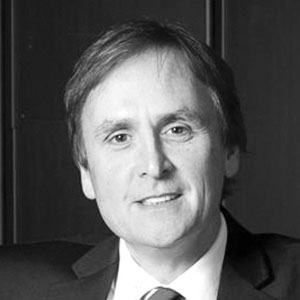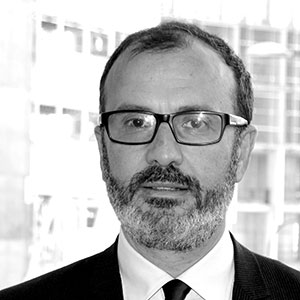In the time it takes you to read this article a further 48 people are likely to become “displaced” – displacement being the catch-all term including asylum seekers, refugees, and those who are internally displaced in their own countries.
The impact of the scale of this displacement has resonated, geographically and politically, far beyond the borders of war-torn territories including Syria, Afghanistan and Somalia – the three countries of origin for more than half of all refugee migrations in 2015.
In 2016, the issue of mass migration has taken centre stage in global politics in numerous ways, most notably through the rise in support of right wing politics. The UK’s Brexit vote, Donald Trump’s ascendancy to the US Presidency, and Pauline Hanson’s election to the Australian Senate are outcomes seemingly predicated by the issue of national sovereignty and border security. In Germany, the defeat of Chancellor Angela Merkel’s Christian Democratic Union party in her home state in recent local elections was a result that Merkel herself attributed to her “open door” immigration policy.
The United Nations states that the world faces a “political, economic, moral and social crisis” as governments and communities struggle to provide effective solutions for unprecedented numbers of people fleeing war, instability or persecution.
UN High Commissioner for Refugees António Guterres says “we are witnessing a paradigm change, an unchecked slide into an era in which the scale of global forced displacement as well as the response required is now clearly dwarfing anything seen before.”
 The way society is required to respond to that change is considerably more complex today compared to previous eras, according to Professor Anthony Elliott, Executive Director of UniSA’s Hawke EU Centre for Mobilities, Migrations and Cultural Transformations.
The way society is required to respond to that change is considerably more complex today compared to previous eras, according to Professor Anthony Elliott, Executive Director of UniSA’s Hawke EU Centre for Mobilities, Migrations and Cultural Transformations.
“There’s nothing new about enforced migration. The difference is that we live in a time now of instantaneous communications, where new information technologies and globalisation mean that we need to create new social and political responses that can better respond to these challenges,” Prof Elliott says.
He argues that the digital revolution has an uprooting effect for almost everyone, and this is especially evident in the transformed landscape of enforced migration.
“Many of the migrants fleeing from Syria, Iraq and Afghanistan into Europe used smartphones to navigate their way, to send texts to other family members en route, and even check on how the authorities in different EU countries were responding to the crisis,” Prof Elliott says.
“This clearly shows that migration is no longer a regional issue, but is global and thoroughly mediated by the digital revolution.”
The combined forces of globalisation and the digital revolution might also spell further problems for multiculturalism.
“The idea of multiculturalism took root before globalisation reached the levels of extensity it has attained today,” Prof Elliott says. “Proponents of multiculturalism tend to assume that ethnic cultures have clear-cut boundaries, and are unchanging over time, but this is no longer so in a world of super-diversity.
“I think the term ‘interculturalism’, is perhaps better for grasping the interplay of freely chosen movement and enforced migrations occurring across the globe – and of the major challenges the world faces in fostering interaction between cultural groups within cities, regions and indeed on the global level.”
Identifying those challenges is what the Hawke EU Centre for Mobilities, Migrations and Cultural Transformations is addressing, through cultural outreach programs and EU-focused research, including projects designed to build understanding about the intersections of freely chosen mobilities (travel, transport and tourism) and enforced migration (refugees and asylum seekers).
As a joint venture between UniSA and the European Commission, the Hawke EU Centre is contributing to the narrative framework on the issue of migration, developing concepts and bringing to light fresh ideas, through workshops and conferences, to create a repository of EU expertise in migration, diasporas, refugees and reconciliation.
 EU Ambassador to Australia, H.E. Sem Fabrizi, who helped launch the Hawke EU Centre in 2014, has outlined the practical, policy driven responses to the migration crisis that the EU is currently implementing, at a cost so far, of $12 billion Euros.
EU Ambassador to Australia, H.E. Sem Fabrizi, who helped launch the Hawke EU Centre in 2014, has outlined the practical, policy driven responses to the migration crisis that the EU is currently implementing, at a cost so far, of $12 billion Euros.
“We have launched a comprehensive agenda for migration which is a complex political and financial exercise to map the short and long term of this emergency,” Ambassador Fabrizi says.
“There are five key elements to this. The first is saving life and reducing the incentive for irregular migration; the second is to manage the inflows of those people; the third is to protect the Schengen system and ensure strong borders of the EU; the fourth is making migration a core element of EU foreign policy; and the fifth is the reform of the common asylum for the EU.”
Saving life, as a top priority, saw the EU rescue more than 250,000 people at sea in 2015, with migrant smuggling targeted in the south and central Mediterranean resulting in the boarding, search and seizure of vessels suspected of being used in migrant smuggling and trafficking.
‘Hotspots’ have also been established to screen, identify and fingerprint people arriving irregularly at the EU’s external borders, with legislation and structures in place to allow for the emergency relocation of up to 160,000 people in need of international protection to other EU Member States.
It is a protection, Ambassador Fabrizi says, that is borne out of the principle of non-refoulement – a principle of international law which forbids the rendering of a true victim of persecution to his or her persecutor, as a measure to ensure those who are seeking international protection receive it, under the 1951 Geneva Convention on the Status of Refugees.
Protecting the Schengen system (an area in which 26 European countries have eliminated passport and border checks, allowing people free passage) is also a core security concern, especially following the terrorist attacks in Paris in November 2015, with a French parliamentary committee report stating that Schengen allows free movement of terrorists.
Addressing the root causes that generate flows of refugees, to create stable environments that remove the need for refugees to journey to Europe, is also a priority, evidenced through the EU’s provision of humanitarian and development aid to Syria and its support to the United Nations in Libya; a response requiring international collaboration.
A distance of more than 10,000 kilometres divides Australia and Europe but the challenges incumbent on both continents in addressing the issue of the migration crisis and asylum seekers are the same.
“We are showing that we can hold the line and follow our law, and international law, and we can manage the problem. But if we want to solve the problem we need a global response – and Australia is a full part of the international community – and we expect everybody to play some part,” Fabrizi says.
The complexities and logistics associated with responding to the migration crisis should not overshadow the human tragedy at its core. More than 3000 migrants perished last year attempting to cross the Mediterranean for a second chance at a safe life, but it took the death of just one – a child called Alan Kurdi – to trigger an unprecedented outpouring of sympathy and solidarity for refugees.
A photograph of the body of this four-year-old Syrian child, lying face down on a Turkish shore in 2015, went viral and focused a moral impetus on governments and communities to bring swifter resolution to the crisis; resolution that not only enables lives to be saved, but also creates better futures for those who have been granted asylum and sanctuary from persecution.
For 20-year old Qasem Bahmanzadah, he was lucky to make it safely to Australia as a child with his family when they fled from Afghanistan to escape the Taliban.
“We were living in the Ghazni province and we didn’t tell anyone, we left everything behind and locked the doors. I remember I was put on the back of a donkey and somehow we got to Pakistan,” Qasem recalls.
In 2007 Qasem arrived in South Australia, unable to speak a word of English. This year he won the Minister for Education’s Award for Excellence in Languages and Cultures and, among numerous other community responsibilities and leadership roles, Qasem is a Youth Ambassador for the Australian Refugee Association. He says that being given a second chance has made him work harder.
“This country has offered me so much I have to give something back to the community,” Qasem says.
“The refugee problem is such a controversial issue with so many angles, but what I believe, and what I know, is that there is a reason why people leave their countries and leave the security of having a job or family behind.
“It requires a strong reason for people to start a journey where their future is uncertain. A lot of people drown on their way to Australia and Europe – it’s a life and death situation, so it’s not a decision they would take lightly.
“Some politicians exploit this issue, the problem is so many haven’t been in the same position themselves and so they don’t talk with much experience.
“Those who have had that experience though, who have left their homes behind, to be given the chance to start again, it’s something that drives you, so you take less for granted and make the most of the chances you are given.
“Everything I owe is to my eldest brother Amin Bahmanzadah and his wife Suhaila Bahar. They are the true heroes of my story where they have laid the foundation for me to be where I am today. They have supported and guided me immensely.”
Earlier in his life Qasem’s father expressed his hopes that one day his son would study aviation. He did not live long enough to see that dream realised, but in August this year Qasem graduated from UniSA with a Bachelor in Aviation.
It’s an academic success for Qasem and also one that’s testament to the positive and enduring value of what can be achieved when migration is managed successfully.